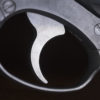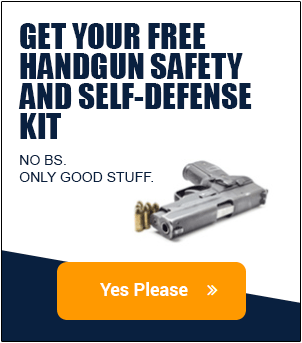A common question among those who carry concealed or considering arming themselves is, “Which caliber is best?”
Below we briefly weigh the pros and cons of five common calibers used for concealed carry.
.22
Small, lightweight firearms designed for .22 are easy to conceal
Limited recoil, allowing for quick followup shots
Due to its size, it will also have less stopping power than larger calibers. However, if you practice regularly and are accurate with your shot, a .22 can effectively stop an attacker.
.380
Increased stopping power over .22
Firearms designed for .380 are typically small, lightweight, and easy to conceal
Finding a firearm designed for .380 will not be difficult, and it is popular choice for concealed carry. Some folks believe the .380 is too small to be effective, however, just like the .22, a .380 can be just as effective as larger caliber munitions with an accurately placed shot.
9mm
Increased stopping power over .22 and .380
Easy to conceal
Manageable recoil
With a larger bullet comes more recoil. It’s just physics. Which makes this a more effective concealed carry, but would require more control and practice.
.40
Sharper recoil
Variety of firearms to choose from
Increased stopping power over 9mm
With a more pronounced recoil than the 9mm, the .40 isn’t for the novice. There are plenty of firearm models to choose from that will fire a .40, so you should not have any trouble finding one that is comfortable for you.
.45
Greatest stopping power of calibers listed here
Military and local law enforcement approved
Large and heavy firearms that are not easily concealed
Like the .40, the .45 is not a starter gun. Skill and precision is a must. Firearms designed to fire a .45 round will be large and heavy, and will be the most difficult to carry concealed comfortably.
An important factor besides caliber is the style of ammunition you are using to protect yourself. We recommend a fluted hollow point style firearm for self-protection.
A fluted hollow point will expand on impact, causing more damage than a full metal jacket. The expansion not only causes more damage, but decreases the likelihood the bullet will pass through the intended target, potentially striking an innocent bystander. Hollow points are more expensive than full metal jackets, so be sure to use FMJs for the majority of your practice shots.
The quick and easy answer to, “Which caliber is best?” is the caliber you are comfortable and most accurate with. So, the question of which caliber is best, would be more accurately asked, “Which caliber is best for you and your skills/needs?” Sure, a .22 has less stopping power than a .45, but if you cannot handle the recoil of a larger caliber, you should not be using it to protect yourself. Make sure to practice, practice, practice, so you can accurately place a .22 round to stop an attacker in his or her tracks.
Protect yourself and your family today; get certified today.


